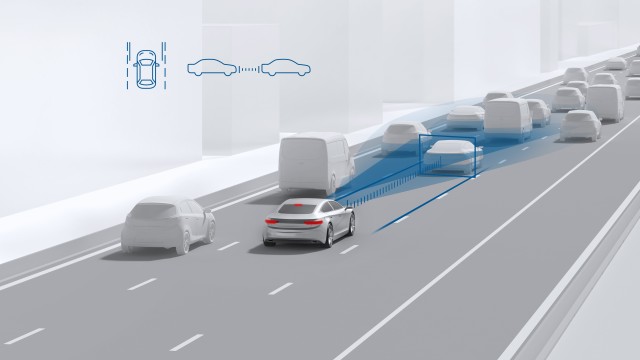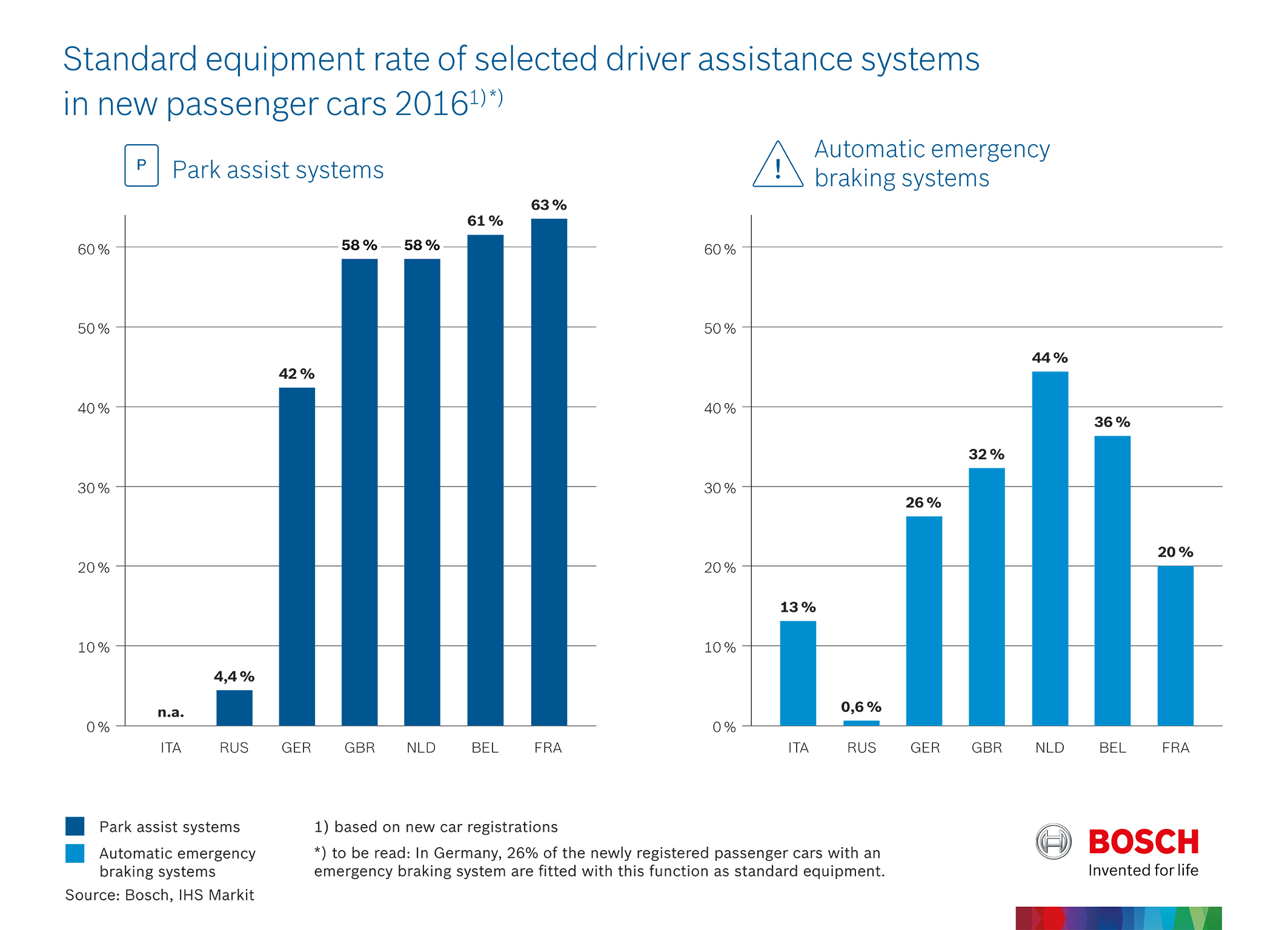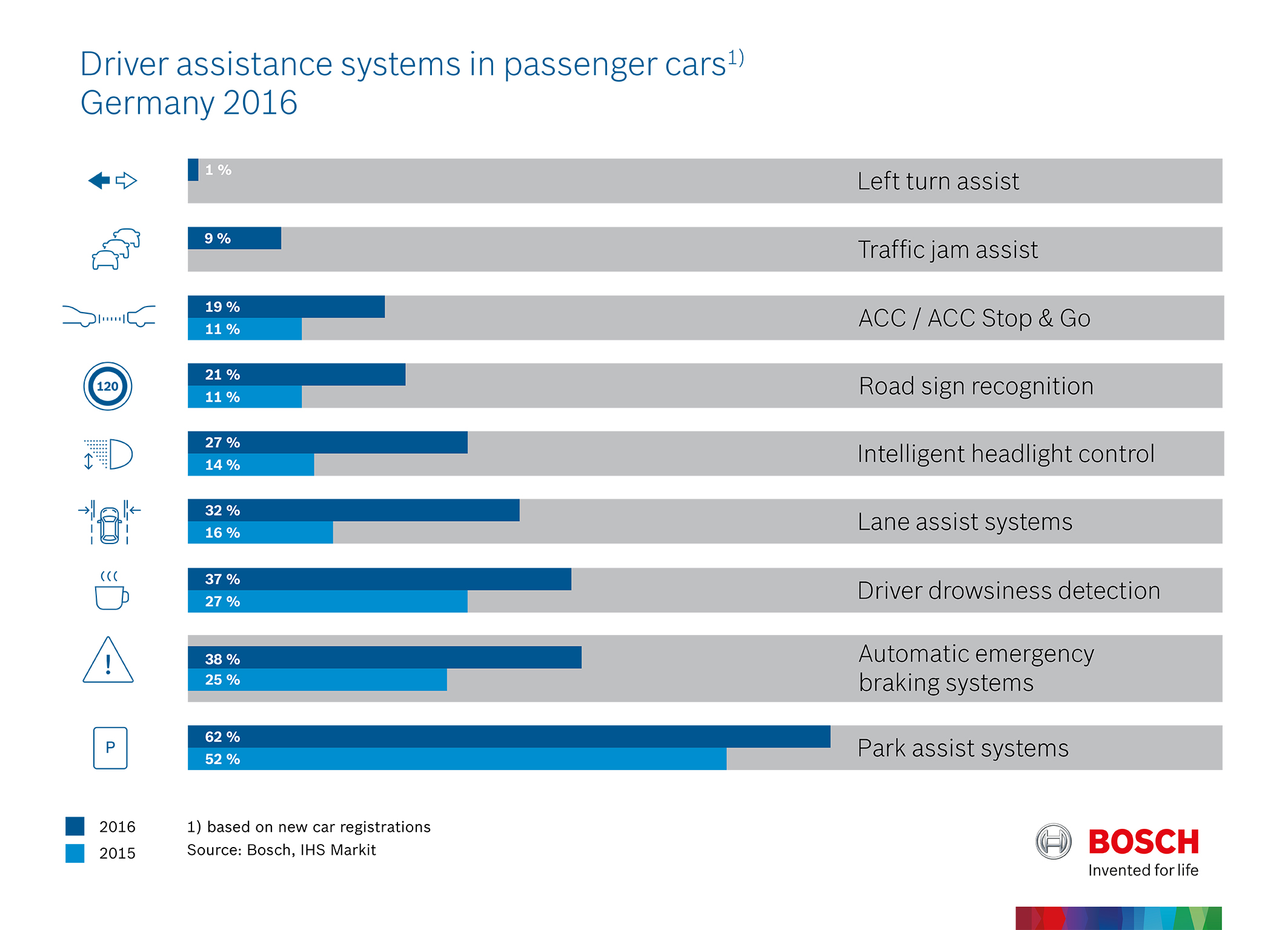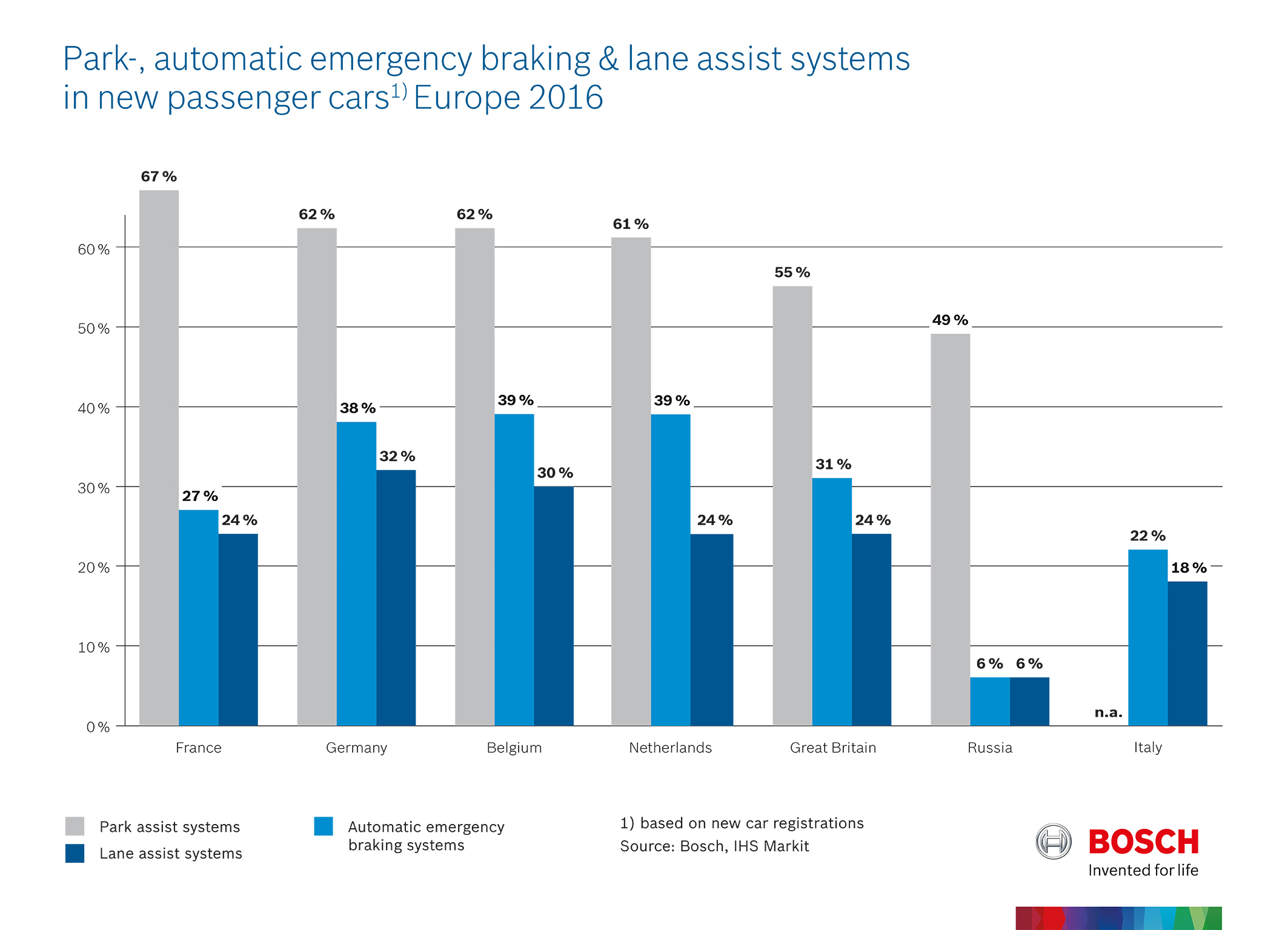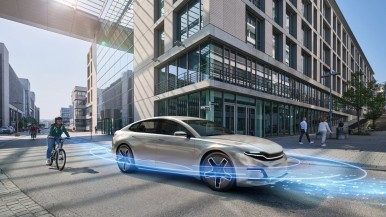Stuttgart, Germany – People buying new cars today in Germany and Europe are placing more and more value on having electronic assistants on board. “There is a clear trend: it will soon be just as natural to have cars fitted with driver assistance systems as it is with a radio and ESP,” says Bosch board of management member Dr. Dirk Hoheisel, referring to the results of a Bosch analysis carried out on the basis of new registration statistics for 2016. According to these statistics, parking and lane assist systems, as well as emergency braking systems are becoming increasingly popular. For example, 62 percent of new passenger cars registered in Germany in 2016 were equipped with some kind of parking assistance system – ranging from parking beepers to automatic parking assistants. Second place in the popularity scale was taken by automatic emergency braking systems that warn drivers or bring the car to a halt in an emergency. More than one in every three new cars registered in 2016 (38 percent) is able to help drivers to avoid accidents in this way. For more than a quarter of these vehicles, an emergency braking system is even part of the car’s standard fittings. Just behind in third place was driver drowsiness detection – fitted in 37 percent of all new passenger cars in 2016. However, the largest growth was recorded for lane assist systems. Compared with the previous year, there were twice as many of these on board new cars in 2016. Another interesting development was in relation to adaptive cruise control (ACC). Although barely fitted in four percent of newly registered cars in Germany in 2013, in 2016, this function was installed in nearly one in five new cars (19 percent).
Mobility is the largest Bosch Group business sector. It generated sales of 55.8 billion euros in 2024, and thus contributed around 62 percent of total sales. This makes the Bosch Group one of the leading mobility suppliers. Bosch Mobility pursues a vision of mobility that is safe, sustainable, and exciting. For its customers, the outcome is integrated mobility solutions. The business sector’s main areas of activity are electrification, software and services, semiconductors and sensors, vehicle computers, advanced driver assistance systems, systems for vehicle dynamics control, repair-shop concepts, as well as technology and services for the automotive aftermarket and fleets. Bosch is synonymous with important automotive innovations, such as electronic engine management, the ESP anti-skid system, and common-rail diesel technology.
The Bosch Group is a leading global supplier of technology and services. It employs roughly 412,000 associates worldwide (as of December 31, 2025). According to preliminary figures, the company generated sales of 91 billion euros in 2025. Its operations are divided into four business sectors: Mobility, Industrial Technology, Consumer Goods, and Energy and Building Technology. With its business activities, the company aims to use technology to help shape universal trends such as automation, electrification, digitalization, connectivity, and an orientation to sustainability. In this context, Bosch’s broad diversification across regions and industries strengthens its innovativeness and robustness. Bosch uses its proven expertise in sensor technology, software, and services to offer customers cross-domain solutions from a single source. It also applies its expertise in connectivity and artificial intelligence in order to develop and manufacture user-friendly, sustainable products. With technology that is “Invented for life,” Bosch wants to help improve quality of life and conserve natural resources. The Bosch Group comprises Robert Bosch GmbH and its roughly 490 subsidiary and regional companies in over 60 countries. Including sales and service partners, Bosch’s global manufacturing, engineering, and sales network covers nearly every country in the world. Bosch’s innovative strength is key to the company’s further development. At 136 locations across the globe, Bosch employs some 82,000 associates in research and development.
Additional information is available online at www.bosch.com, www.bosch-press.com.
